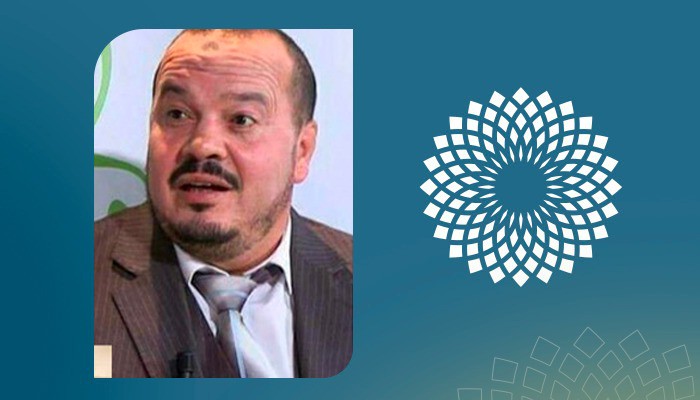
Virtual conference "Vocabulary of Qur’anic Discourse: Method to Correct Understanding"
- 2021-Apr-23
Among the daily virtual Ramadan lectures, The World Muslim Communities Council organized, on Friday April 23, 2021, a lecture entitled “Vocabulary of Qur’anic Discourse: Method to Correct Understanding,” in which Dr. Bin Yahya Naous, Professor of Linguistics at Ahmed Zabaneh University in Baghlizane, Algeria, spoke via the Council's social media pages.
Dr. Bin Yahya Naous said that the Qur’an urges the pursuit of civilized behaviors, communication, love and cooperation, in order to spread goodness, achieve a happy life, and establish peace and security in the world. The Qur’an is an absolute divine discourse, which is a transfer of meaning according to context and position.
He added: "Understanding the vocabulary of the Noble Qur’an and delving into its meanings leads to understanding it within its context. The best way is to interpret the Qur’an with the Qur’an in a contextual approach to reach the meaning that Allah put it there.
Dr. Bin Yahya explained that there is the Qur’anic linguistic context that related to the internal meaning, and the non-linguistic context related to understanding the vocabulary. He is stressing that it is necessary to understand the general meaning of the Qur’an, to understand the Qur’anic vocabulary, to link the Qur’an to speech, as well as to know the type of the surah, Meccan or Medinan, and distinguish the local connotation, in order to understand the general meaning of the Book of Allah. He distinguished between the lexical significance of the Qur’anic vocabulary, which is returning the word to the Arabic and to know how Arab uses it, and the contextual significance, which is returning the word to its position in the text.
It is noteworthy that the World Muslim Communities Council is an international non-governmental organization, headquartered in the UAE capital Abu Dhabi. It is considered a think tank to rationalize organizations and societies working in Muslim societies, renew their thinking and improve their performance in order to achieve one goal; The integration of Muslim societies in their countries, in a way that their members realize the perfection of citizenship and complete affiliation with the Islamic religion. The council seeks, through holding dozens of virtual conferences, seminars and activities, to localize the concepts of religious, ethnic and cultural pluralism, in a manner that preserves human dignity and respect for his beliefs, and establishes the values of moderation, dialogue, tolerance and belonging to the homelands.